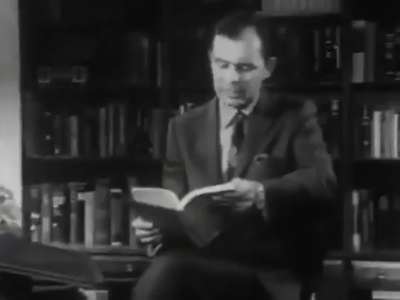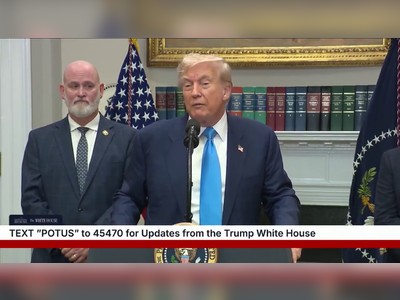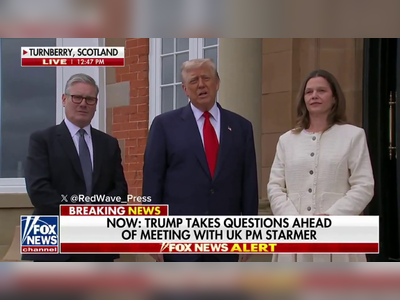Moldova Advances Towards EU Membership Amid Russian Threats
Progress in reforms and EU integration is notable, but Russia's interference poses significant challenges.
Brussels - Moldova is making significant progress on its path towards European Union (EU) membership, but the country must maintain its reform momentum to open the first negotiating chapters within the coming months.
This development is critical, especially as the nation prepares for parliamentary elections scheduled for September 2025, against a backdrop of potential Russian interference.
During a joint press conference on June 4, EU High Representative Kaja Kallas acknowledged Moldova's impressive strides in combating corruption, advancing judicial reform, and protecting democratic values.
She emphasized that while Moldova has made substantial progress, continuous reforms remain essential to sustain this momentum.
Kallas reiterated the sentiment that "Moldova belongs to Europe," reflecting the EU's support for Chisinau's aspirations.
The first high-level EU-Moldova summit is scheduled for next month, focusing on areas including energy, digital policy, and education.
The EU Commissioner for Enlargement, Marta Kos, noted that Moldova's pace in its EU integration efforts is unprecedented, stating the possibility of opening all 33 negotiating chapters by the end of the year is on the table.
Experts indicate that Moldova's progress is occurring at double the speed compared to other candidate countries, and technical work may be concluded by the end of 2027. Prime Minister Dorin Recean stated that EU membership is moving from a dream to a tangible reality.
The European Commission has submitted three reports to the EU member states on various aspects of Moldova's integration, seeking a decision from the Council for the opening of the first negotiating chapters "as soon as possible."
Chisinau has already begun to feel the benefits of gradual integration with the EU. This strategy allows candidate countries to experience EU membership advantages ahead of actual accession through extended implementation of EU policies, particularly in the area of the single market.
For Moldova, three key instruments are currently in play: a €1.9 billion Growth Plan aimed at bolstering infrastructure development, the extension of the Single Euro Payments Area (SEPA) to Moldova, and opportunities for participation in the €150 billion Safe Fund for rearmament across Europe.
However, Moldova's path forward is threatened by potential Russian influence.
The Kremlin has several strategies to deter countries from moving closer to the EU, one of which involves leveraging energy resources.
To counteract this, Brussels has initiated a two-year strategy to enhance Moldova's energy security, crucial for its sovereignty.
In addition, Chisinau must guard against Russian interference in its democratic processes, particularly as it approaches the upcoming elections.
Kallas noted that these elections are expected to be a main target for Moscow's hybrid warfare, which may include financial manipulation, online disinformation tactics, and coercion to sway voters.
The EU is prepared to assist Moldova by deploying a civilian mission and experts to address illicit financial networks and counter hybrid threats.
Recean has expressed concerns that Russia may attempt to manipulate the elections to install a pro-Russian government in Chisinau, which could facilitate Moscow's potential deployment of "10,000 soldiers" to the breakaway region of Transnistria.
This situation raises fears of a humanitarian crisis in the region, potentially being exploited against Ukraine and Romania.
This development is critical, especially as the nation prepares for parliamentary elections scheduled for September 2025, against a backdrop of potential Russian interference.
During a joint press conference on June 4, EU High Representative Kaja Kallas acknowledged Moldova's impressive strides in combating corruption, advancing judicial reform, and protecting democratic values.
She emphasized that while Moldova has made substantial progress, continuous reforms remain essential to sustain this momentum.
Kallas reiterated the sentiment that "Moldova belongs to Europe," reflecting the EU's support for Chisinau's aspirations.
The first high-level EU-Moldova summit is scheduled for next month, focusing on areas including energy, digital policy, and education.
The EU Commissioner for Enlargement, Marta Kos, noted that Moldova's pace in its EU integration efforts is unprecedented, stating the possibility of opening all 33 negotiating chapters by the end of the year is on the table.
Experts indicate that Moldova's progress is occurring at double the speed compared to other candidate countries, and technical work may be concluded by the end of 2027. Prime Minister Dorin Recean stated that EU membership is moving from a dream to a tangible reality.
The European Commission has submitted three reports to the EU member states on various aspects of Moldova's integration, seeking a decision from the Council for the opening of the first negotiating chapters "as soon as possible."
Chisinau has already begun to feel the benefits of gradual integration with the EU. This strategy allows candidate countries to experience EU membership advantages ahead of actual accession through extended implementation of EU policies, particularly in the area of the single market.
For Moldova, three key instruments are currently in play: a €1.9 billion Growth Plan aimed at bolstering infrastructure development, the extension of the Single Euro Payments Area (SEPA) to Moldova, and opportunities for participation in the €150 billion Safe Fund for rearmament across Europe.
However, Moldova's path forward is threatened by potential Russian influence.
The Kremlin has several strategies to deter countries from moving closer to the EU, one of which involves leveraging energy resources.
To counteract this, Brussels has initiated a two-year strategy to enhance Moldova's energy security, crucial for its sovereignty.
In addition, Chisinau must guard against Russian interference in its democratic processes, particularly as it approaches the upcoming elections.
Kallas noted that these elections are expected to be a main target for Moscow's hybrid warfare, which may include financial manipulation, online disinformation tactics, and coercion to sway voters.
The EU is prepared to assist Moldova by deploying a civilian mission and experts to address illicit financial networks and counter hybrid threats.
Recean has expressed concerns that Russia may attempt to manipulate the elections to install a pro-Russian government in Chisinau, which could facilitate Moscow's potential deployment of "10,000 soldiers" to the breakaway region of Transnistria.
This situation raises fears of a humanitarian crisis in the region, potentially being exploited against Ukraine and Romania.












